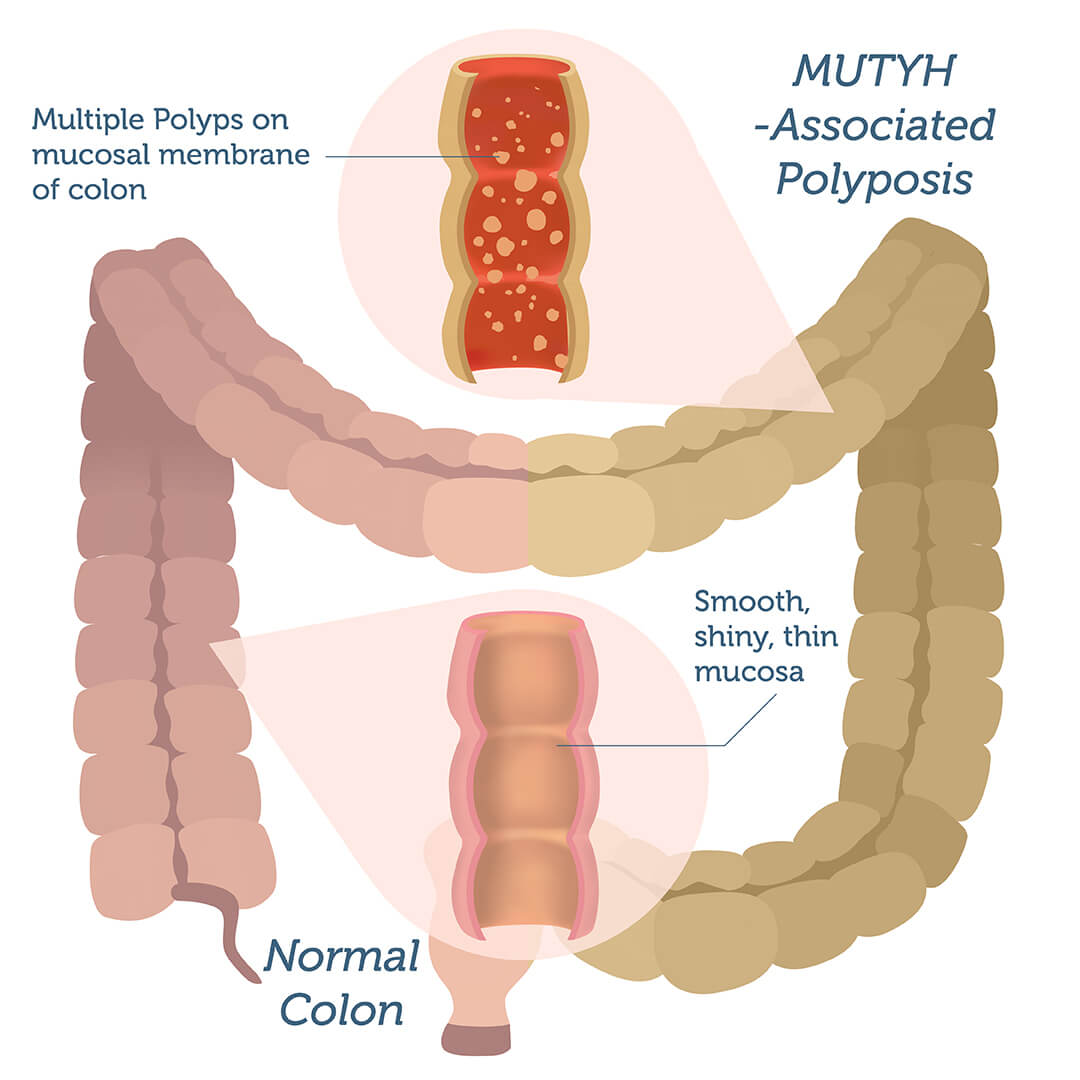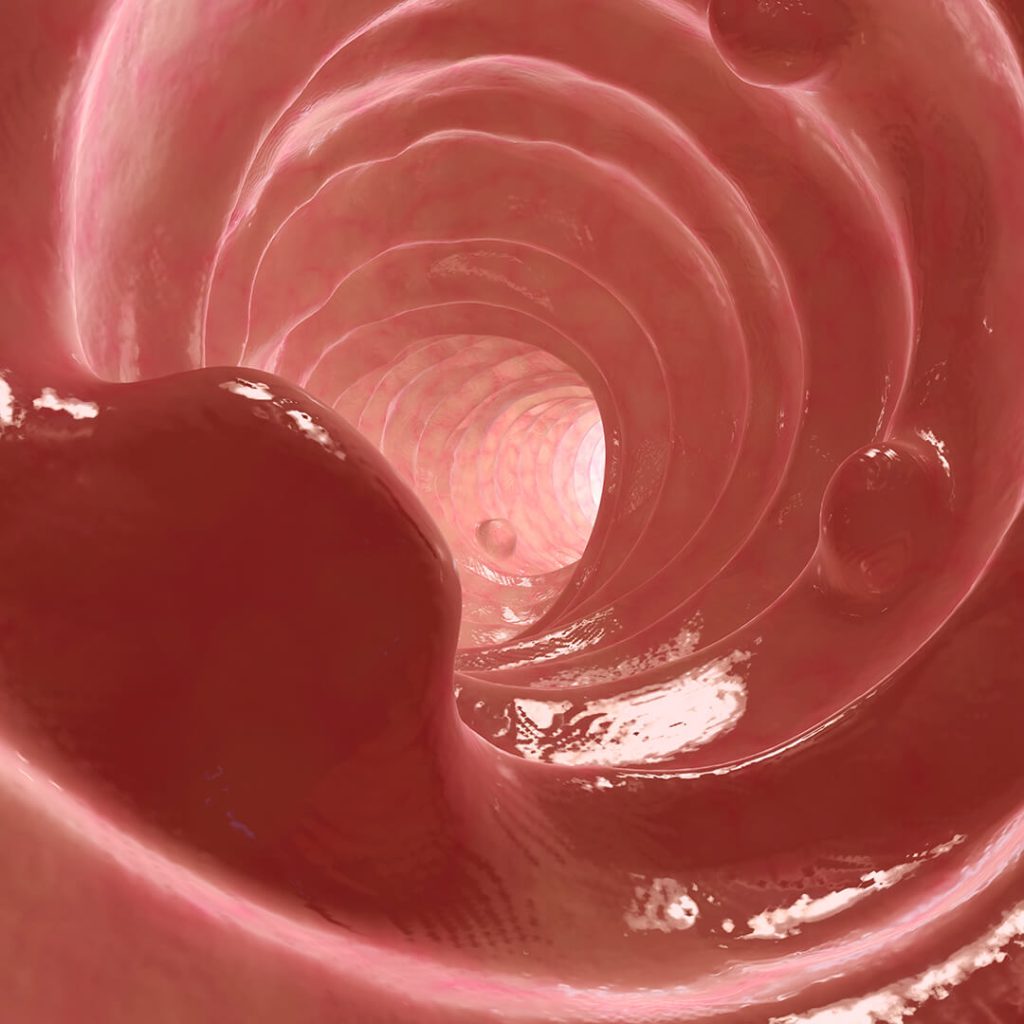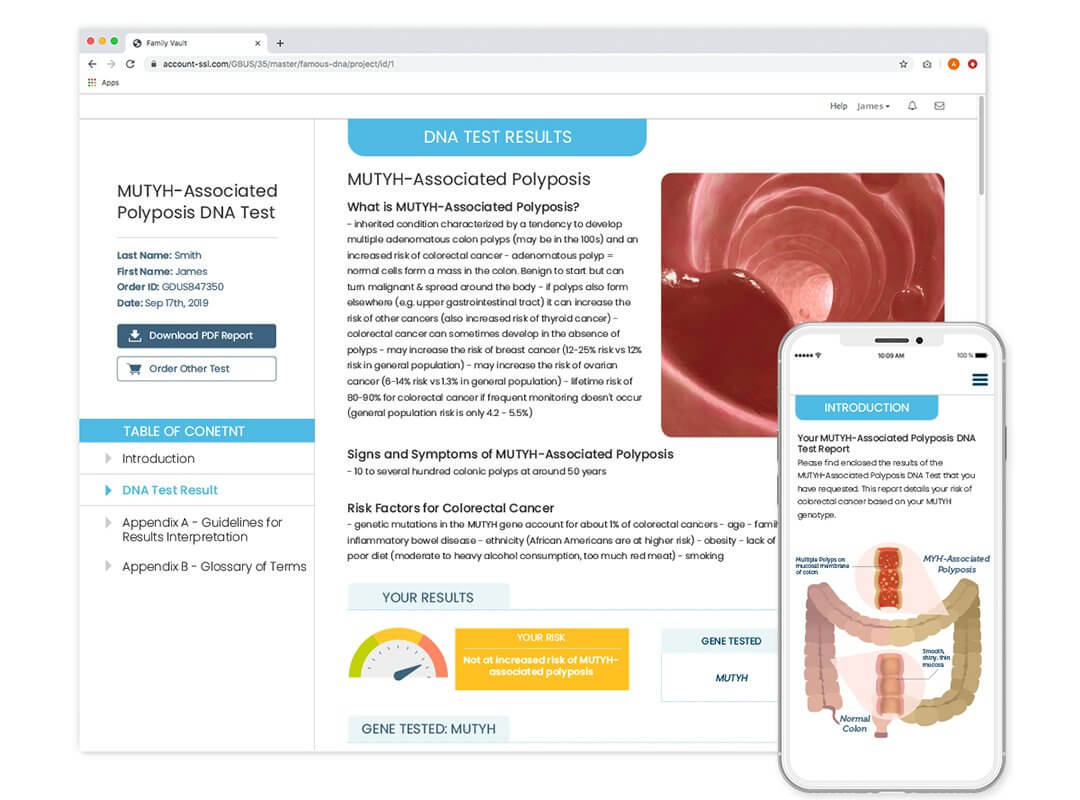MUTYH-Associated Polyposis
Are you at risk of MUTYH-associated polyposis, which increases the risk of developing colorectal cancer? Find out with this DNA Test.
- Detects two variants of the MUTYH gene that increases the risk of cells becoming cancerous
- Individuals with this disease are at high lifetime risk of developing colorectal cancer
- 100% private and confidential online results
Already have DNA markers? Sign in and upload your data to view results.
Need to take the DNA Test? Order our easy-to-use swab kit.
Detailed Description
MUTYH-Associated Polyposis also known as MAP is a rare, inherited condition characterized by a greatly increased risk of developing colorectal cancer. People with MAP have a tendency to develop multiple adenomatous colon polyps during their lifetime, which puts them at risk of cancer.
An adenomatous polyp is a place in the colon where normal cells that line the inside begin to form a mass. At the beginning the polyps are benign, this means they are not cancerous and will not spread. But, some polyps can go onto become malignant or cancerous and begin to spread around the body.
Take this test to find out whether you are at risk. Polyp removal and routine monitoring is key to minimizing colorectal cancer risk in those with MAP.

The Genetics
MUTYH-Associated Polyposis is caused by genetic variation in the MUTYH gene. MAP is inherited in an autosomal recessive manner, which means two variant copies of the MUTYH gene are necessary to increase the cancer risk.

Variant Tested
This report detects two MUTYH variants that disrupt the function of MYH glycosylase, leading to a build up of DNA errors, which increases the risk of normal cells becoming cancerous. They account for 80-90% of cancer-related MUTYH variants in people of Northern European descent.
- rs34612342
- rs36053993
Understanding your genetic risk for MAP is important because routine monitoring is key to minimizing colorectal cancer risk
Other factors associated with colorectal cancer risk
- Age
- Family history
- Ethnicity
- Obesity
- Other genetic mutations
- Inflammatory bowel disease
- Lack of physical activity
- Type 2 diabetes
- Smoking
- Poor diet (alcohol consumption and excessive amounts of red meat)
How It Works
Step 1: Sign up for a free Genebase account.
Step 2: Upload your DNA markers to Genebase.
Step 3: Login to your account to access your results when they are ready.


